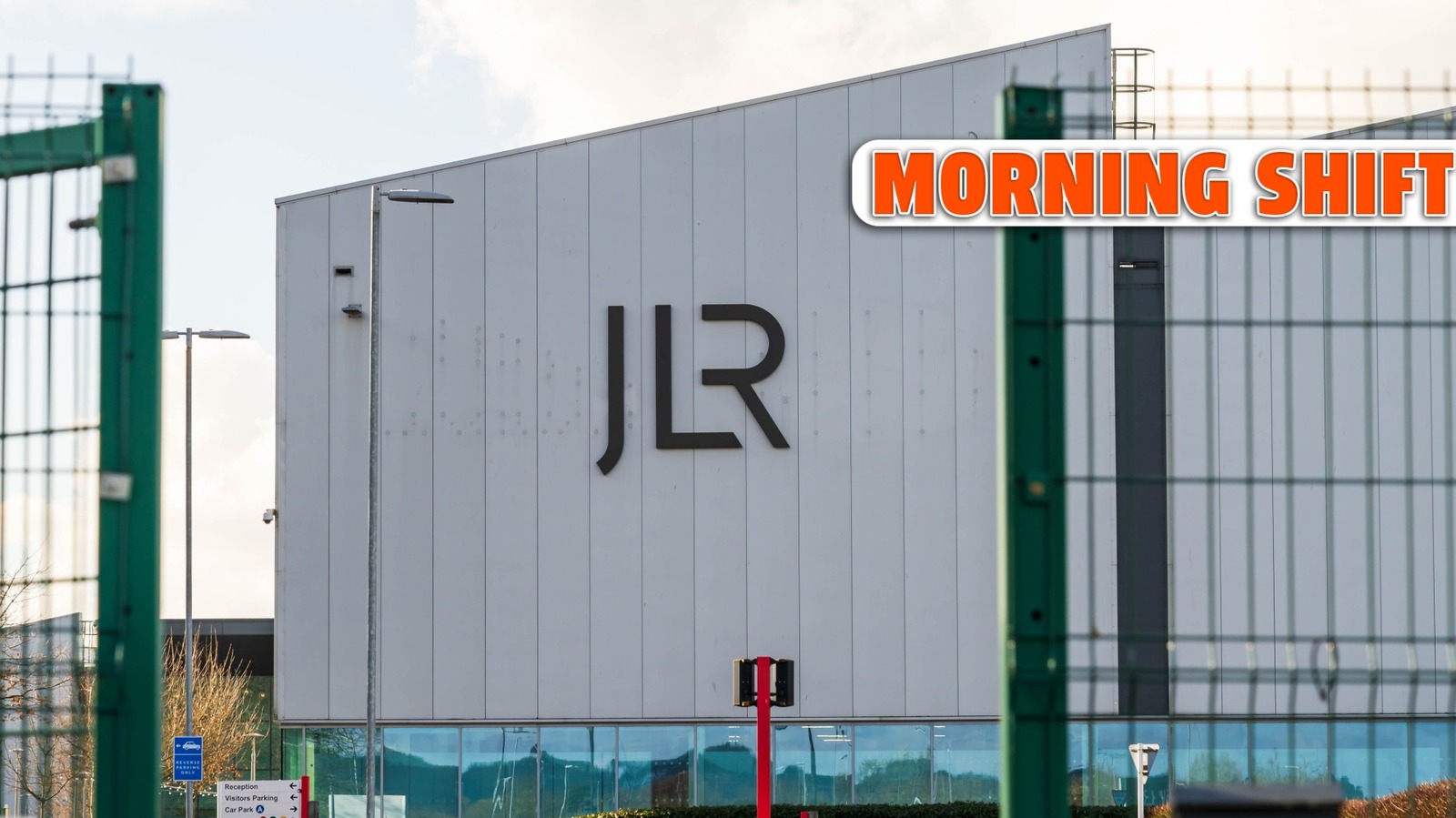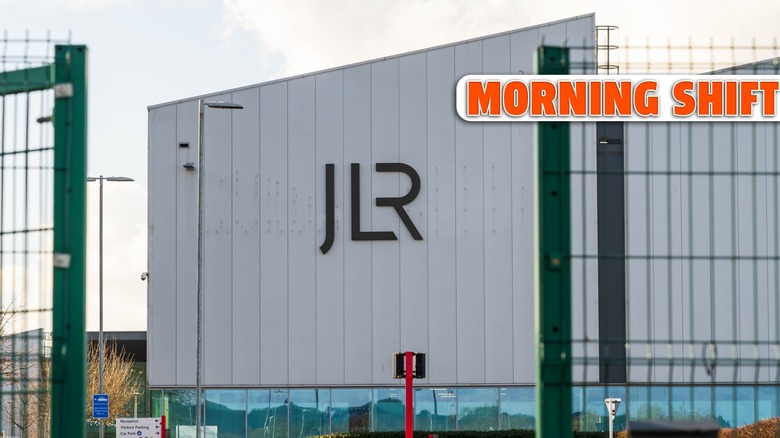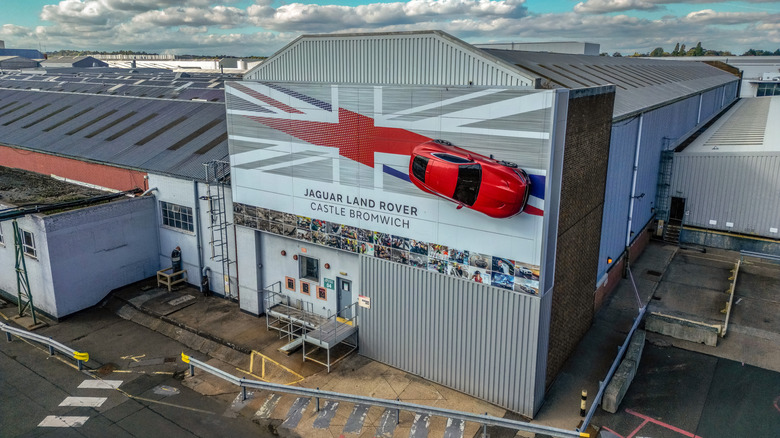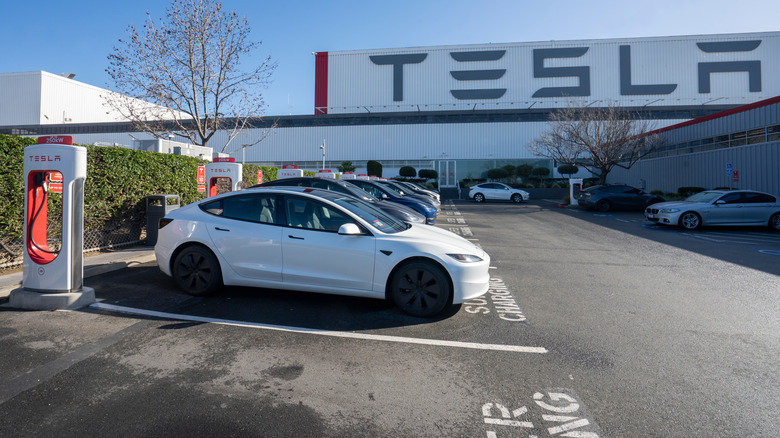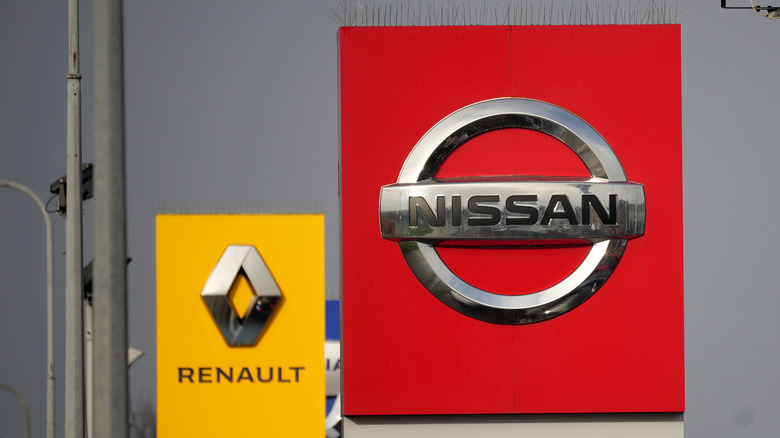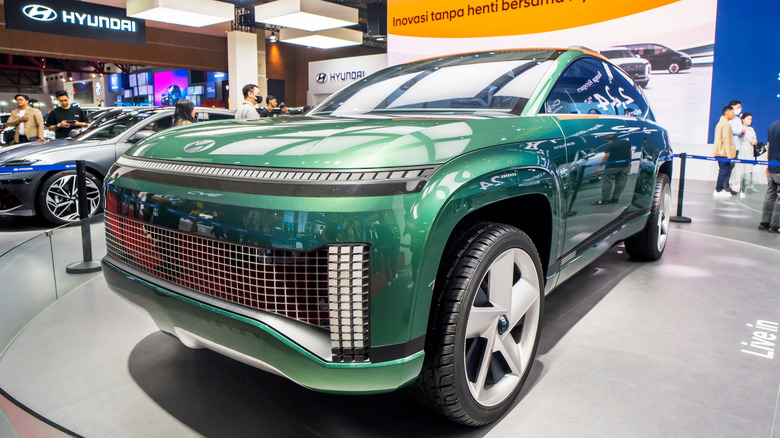Good morning! It’s Monday, November 17, 2025, and this is The Morning Shift, your daily roundup of the top automotive headlines from around the world, in one place. This is where you’ll find the most important stories that are shaping the way Americans drive and get around.
In this morning’s edition, the financial toll of Jaguar-Land Rover’s cyberattack is getting clearer, Tesla wants to build cars without using any Chinese parts, Renault and Nissan may give their love another chance and Hyundai is investing a huge amount of money in South Korea following a trade deal with the U.S., but a ton of it is for AI.
1st Gear: JLR is in serious trouble, man
Jaguar-Land Rover‘s sales and finances were in a rickety place this year, and then things got far worse after it was hit by a massive cyberattack that stymied production and operations for over a month. Now, the automaker’s CEO, Richard Molyneux, is saying that it is unlikely to recover all of the sales volume lost during that period.
JLR’s vehicle sales dropped 24% to 21,139 in the third quarter of 2025, which ended on September 30. Of course, a massive chunk of that decline was because of the cyberattack-caused production stoppage, but the planned wind-down of Jaguar’s legacy models ahead of the launch of its new fully electric range didn’t help, and neither did the impact of President Trump’s tariffs in the U.S. When you combine all of these things together, JLR posted a $720 million loss after tax in Q3. When you compare that to a $373 million profit the same time last year, things seem even more bleak. From Automotive News:
The company said it now expects an operating margin of 0 percent to 2 percent for the full year, down from an earlier goal of 5 percent to 7 percent, after already trimming expectations earlier this year amid tariff-related uncertainty.
JLR resumed production in October, after it was forced to shut down computer systems in early September to contain the cyberattack.
Production is now back to normal, JLR said, while warning that not all of the sales lost during the shutdown can be recovered.
“Some of that volume we will get back, some of it we will not, given the state of a global demand and competitor oversupply,” Molyneux said on an earnings call Nov. 14.
[…]
The U.S., JLR’s largest market, is one of the most stable currently, along with the Middle East and the U.K, Molyneux said. “Europe is probably a little bit vulnerable. The economy is not in the best shape there,” he said.
U.S. tariffs aren’t helping matters. They added nearly $100 million in extra costs in Q3, according to JLR. Models produced at its UK factories get hit with a 10% tariff, but the vehicles it builds in Slovakia (like the Defender and Discovery) get 15% levies.
I’m not sure how JLR pulls itself out of this one, folks.
2nd Gear: Tesla wants to rid itself of Chinese supply chain
Tesla is making its suppliers exclude Chinese-made components from the manufacturing processes of its vehicles in the U.S. It’s the latest in an escalation after deciding it would stop using China-based suppliers for U.S.-made Teslas earlier this year.
Apparently, Tesla and its suppliers have already replaced some China-made components with parts made elsewhere, and Tesla is aiming to switch all other components to those made outside of China within the next couple of years. This has been a years-long effort for Tesla. From The Wall Street Journal:
Tesla has been trying to reduce its dependence on China-made components for its U.S. cars ever since the Covid-19 pandemic disrupted the flow of goods from China, and encouraging its China-based suppliers to make components elsewhere including in Mexico. But this year, after President Trump imposed stiff tariffs on Chinese imports, the company accelerated the strategy to cut out Chinese parts, the people said.
[…]
Tesla executives have been grappling with the uncertainty brought by fluctuating tariff levels in the U.S.-China trade battle, which has made it difficult for the carmaker to formulate a coherent pricing strategy, some of the people said.
The geopolitical tensions between Washington and Beijing and the fallout on the global auto supply chain have only intensified Tesla’s urgency in pursuing the China-free strategy. In recent weeks, fresh disruptions in the supply of automotive chips stemming from a spat between China and the Netherlands have triggered discussions at Tesla about the need to accelerate diversification, some of the people said.
[…]
Tesla has been pursuing a strategy of cutting back on made-in-China components for its U.S. cars since Trump’s first administration. As a part of this approach, Tesla has worked with its Chinese suppliers—including those making seat covers and metal casings—to set up factories and warehouses in Mexico and Southeast Asia in recent years, people familiar with the project said.
One Chinese-made component that Tesla has continually struggled to replace is the lithium-iron phosphate battery in its cars, called LFP batteries. CATL, a Chinese company, has been a major supplier for the automaker for some time now.
Until last year, Tesla was selling cars in the U.S. with Chinese-produced LFP batteries, but since then it stopped doing so, because they became ineligible for EV-related tax credits and also due to U.S. tariffs.
Tesla is working to build LFP batteries for energy-storage products in the U.S. In October, the company said it expected its facility in Nevada making such battery products to start running in the first quarter of 2026.
Back in April, Tesla’s CFO said the company was working on manufacturing LFP cells in the U.S. as well as on “securing additional supply chain from non-China-based suppliers.” However, he admitted that it would take time to actually get done.
3rd Gear: Nissan, Renault could give it another go
Renault and Nissan, the Bennifer of the automotive industry, might soon rekindle their love following leadership changes at both automakers. With Ivan Espinosa at the helm at Nissan and Francois Provost leading Renault, the two may spin up their once-strong alliance anew. From Automotive News:
Renault took a controlling stake in Nissan in 1999, eventually holding 43 percent of the automaker’s shares. Carlos Ghosn, then a young Renault executive, was dispatched by Renault CEO Louis Schweitzer to return Nissan to profit, and under Ghosn the Renault-Nissan Alliance became one of the top automakers by volume and was seen as a model for global collaboration.
Ghosn’s arrest in Tokyo in November 2018 on financial fraud charges exposed long-festering issues between the French and Japanese companies, and the alliance started to unravel, with Renault losing its influence and announcing a plan to sell down its stake.
Renault now holds about 36 percent of Nissan shares, although 19 percent of that is in a trust that it is seeking to sell down, with 15 percent voting rights. Nissan holds 15 percent of Renault.
De Meo had sought to reinvest Renault’s proceeds from selling its Nissan stake to bolster Renault, the FT said, citing the sources. That plan has been complicated by Nissan’s falling share price; earlier this year Renault wrote off €9.5 billion of its Nissan stake.
Currently, there’s very little overlap between the two automakers. It’s ticky-tack stuff like Renault agreeing to build the Micra EV for Nissan at a factory in France. The two no longer share a management board or purchasing organization.
However, that could all be changing soon. A spokesperson for Renault told the outlet that Provost and Espinosa were in regular discussions about how each automaker could support the other, adding that it was a “good sign” for the future of the relationship.
In what reads like a celebrity recoupling statement, a Nissan spokesperson said that the alliance “is a key pillar of our business,” and they added that the two groups were working on “several high-value strategic projects.”
They’re getting back together for the kids.
4th Gear: Hyundai dropping $87 billion in South Korea, and a ton of it is for AI
Hyundai says it’s going to invest about $86.5 billion in South Korea between 2026 and 2030, and a lot of that is going toward AI garbage. The move comes after the automaker finalized a trade deal reducing U.S. tariffs on South Korean vehicles from 25% to 15%. That trade deal also includes South Korea’s promise to invest $350 billion in U.S. strategic sectors. From Reuters:
“We are well aware of concerns about exports declining and domestic production shrinking due to U.S. tariffs of 15%,” Chung said after the meeting.
“We will diversify export markets, increase exports from domestic factories and more than double auto exports through new electric-vehicle factoies by 2030,” Chung said, adding that the group will also provide support to auto parts makers hit by President Donald Trump’s tariffs.
Of Hyundai’s domestic investments, 50.5 trillion won ($35 billion) will be in AI and other future business opportunities, 38.5 trillion won in research and development, and 36.2 trillion won on optimising production facilities and building a skyscraper, the group said.
I’ve got no idea what $35 billion in AI investments for Hyundai could possibly look like, but I’ve got a good feeling it will never see that money again.
Reverse: Yeah, so these guys were traitors
I’ll tell you what, I think we were a little too nice to these guys when we let them back into the U.S. Look at the mess they made. We’re still cleaning it up.
On the radio: MoRuf – PT Cruiser ft. SZA
Yes, the PT Cruiser deserves a song in its honor. After all, it was my dream car when I was three years old, and that counts for something. Separate from that, this song is a straight-up bop.


